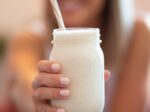 If you are over 35 years of age and still playing sport you will most likely be in the ‘Master’s category’ for that sport and eligible to play in the Master’s Games 1
If you are over 35 years of age and still playing sport you will most likely be in the ‘Master’s category’ for that sport and eligible to play in the Master’s Games 1
Age was not a barrier in the 2021 Coast to Coast endurance race that traverses the South Island of New Zealand with 55% (648) of competitors being over 35 years.2
Whether you have enjoyed a lifetime of training and competition in a particular sport; have just taken up a new sport or are simply wanting to keep fit at the gym; deliberate, regular exercise is an important part of a healthy lifestyle.
Some sports can be very social, such as cycling, running and golf. These sports often come packaged with holidays abroad or are associated with charity events and “fun runs” offering an opportunity to connect with others. People often leave the taking up of a sport until retirement when they have more time (and maybe money) to devote to it.
Regular moderate exercise of up to an hour per day is proven to reduce the signs of ageing; improves mental health as well as helping to prevent obesity, diabetes, coronary heart disease and some forms of cancer. However, when undertaking major events which demand extra training, care must be taken to replenish the body’s nutrient stores.
Every day we require sufficient energy to fund our daily activities at work or home plus body growth and repair. When extra exercise is undertaken energy and nutrient requirements increase. When these needs are not met fatigue, loss of mental functioning (mood and memory), tissue breakdown and loss of immune function can occur.
On top of the added nutrient requirements Master’s athletes need to be aware of changes in bodily function as we age, which also impact on our dietary needs. Here are some of the functional changes senior athletes need to be aware of.
Physical changes with age
Body composition
Normally in sedentary people fat mass doubles between 20 and 50-60 years of age followed by a fall in body fat after 70 years of age. There is also a drop in muscle mass, muscle glycogen stores, aerobic capacity and a decrease in energy requirements.3 These changes are less apparent in older endurance athletes who should be encouraged instead to maintain sufficient energy up to the age of 70 years to meet their higher needs for training and competition.
Energy requirements
Carbohydrate should still provide around 55% of energy intakes be rich in complex carbohydrates and low GI. Excessive levels of dietary fibre (>35g) may not assist older athletes and can lead to gastro intestinal discomfort and mineral imbalance. A normal intake of whole grains cereals, fruit and vegetables will however provide:
- Vitamin C and B group vitamins that are essential for nerve health; stopping connective tissue breakdown during training and competition and enhancing tissue repair during recovery
- Reduced energy density, slowing gastric emptying and raising satiety levels.
- A lowering of plasma cholesterol and providing Vitamin E, zinc and folic acid important for immunity and cancer prevention.
- A reduced incidence of bowel upsets particularly constipation and diverticular disease which are problems that often increase with age.
Athletes who suffer from exercise- induced gastrointestinal syndrome should definitely talk to a sports dietitian as dietary change can improve the enjoyment of their sport and protect their long-term health.
Protein requirements
Normally with ageing there is a reduction in muscle mass and a slowing of protein turnover and protein synthesis. Changes within the gut may also alter protein (amino acid and peptide) absorption. When energy levels fall below requirements there is also protein loss. The level of protein required by senior athletes will depend on the intensity and duration of their exercise bouts. While protein is important for muscle-building the use of high protein regimes needs to be weighed against other risk factors:
- Impaired kidney function with age
- Falling bone density
- Cardio vascular health
- Gout
Depending on individual factors, levels around 1.2-1.7g/kg of body weight per day may be required (15-20% energy intake). Recent research around the importance of protein for muscle adaption and recovery has highlighted the use of whole foods rather than the dependence on dietary supplements to achieve this. A nutrition education update regarding such things may be helpful for some athletes 4
Fat accumulation
Fat is essential as a source of essential fatty acids, fat-soluble vitamins ( A, D, E and K) and as an energy source during low intensity or prolonged exercise at below 70% maximal aerobic power. Fat should provide 25-30% of energy needs.
Older athletes do need to monitor their weight and cholesterol levels as changing liver function with age and the accumulation of abdominal (visceral fat) can compromise cardiovascular health, mental and physical performance. This becomes evident when there is a rise in the total cholesterol and LDL (i.e bad cholesterol) levels and a decline in their (healthier )HDL cholesterol. These things respond well to dietary assessment and intervention with the help of a Sports Dietitian.
Bone density
As the body ages there is a loss of bone density and an increased need for calcium and Vitamin D. Calcium bioavailability is affected by loss of absorptive tissue in the gut (gastric atrophy) with age. Athletes most at risk from stress fractures and osteoporosis are:
- Postmenopausal women
- Those with poor consumption of calcium rich foods such as milk and milk products.
- Athletes training in hot climatic conditions where excess sweating increases calcium losses
- Athletes who consume excess levels of alcohol
- Those involved in repetitive impact sports such as running
- Athletes taking medications such as steroids or anticonvulsants.
- Athletes consuming high levels of sodium, phosphorus or caffeine.
A decline in Vitamin D synthesis from sunlight can occur with ageing of the skin, along with the excessive use of sunscreen, excess clothing and depending on global latitude.
Gastric atrophy
With age there is a change in the cells lining the gut that are important for the secretion of gastric acid which in turn aids the absorption of Vitamins C and B12, folic acid, calcium, iron and zinc. Taking supplements of these nutrients will be less helpful than improving the intake of the whole foods in which they are found.
Changes in fluid balance
With age there is a change in the way the body handles fluids.
- A reduction in saliva production can lead to a dry mouth, poor dental health and swallowing difficulties. As saliva provides enzymes that help the breakdown of carbohydrate and protein, gastric upset can occur.
- A loss of thirst sensitivity can lead to problems of dehydration
- Changes in kidney function can alter fluid balance which in turn can also impact on an athlete’s ability to regulate their body temperature.
Changes in appetite
Exercise and ageing can both reduce appetite. While this can be beneficial for those who need to reduce their body weight, for those who already have a low body weight and high energy needs (e.g. marathon runners) care should be taken. Eating disorders are no longer confined to young people and can impact not only on an older athletes performance but also their longevity.
Dietary supplements
Research in 2016 5 has found that Masters athletes may supplement more than non- athletes of similar age. Common supplements included vitamins, calcium supplements, Glucosamine and chondroitin, DHEA/testosterone and creatine.
While there may be a greater demand for energy and nutrients when we age the use of dietary supplements should be discouraged for the following reasons:
- Vitamin and mineral supplements can blunt the body’s natural immune response to the increase in needs associated with exercise, so be guided by your doctor.
- Dietary supplements can interact with prescribed medication reducing the medicines effectiveness.
- Supplements, especially those purchased over the internet, can contain substances banned by the IOC. This may lead to disqualifications following events if drug testing returns a positive result.
Nutrition tips for senior athletes
- Enjoy a wide variety of nutritious foods
- Keep active to maintain good muscle strength and a healthy body weight
- Eat plenty of fruit and vegetables, breads and cereals
- Choose a diet low in saturated fat and minimal salt
- Drink plenty of water and low-fat milk
- If you drink alcohol do so in moderation
- Learn to alter your energy intake according to your activity levels at baseline, training and competition. In this way you can ensure nutrient adequacy, good recovery and great results long-term.
- Recognise that your nutrient needs change with age and the level and type of sport you are undertaking. While a certain routine of eating, may have served you well as a younger athlete you may achieve better results today with a refreshed sports nutrition plan.
If you would like to check the adequacy of your current diet and develop a sports nutrition plan that will maximise your performance and protect your long-term health, then contact us today.
References
- Masters games in NZ https://www.nzmg.com/sports2021/
- NZ Coast to Coast 2021 results
- Burke L, Deakin V. Nutrition and the ageing athlete. Clinical Sports Nutrition 2000. 19,602-22.2nded McGraw- Hill Australia
- Hayes, E, et al, 2021 Older adults’ knowledge and perceptions of whole foods as an exercise recovery strategy
https://www.frontiersin.org/articles/10.3389/fnut.2021.748882/full - Guthrie, S.K; Erikson, S.R; Master swimmers use more dietary supplements than a large national comparison population in US. Inter.J. Sport.Nut Ex Met,2016 April;26(2)123-7.















Leave a Reply